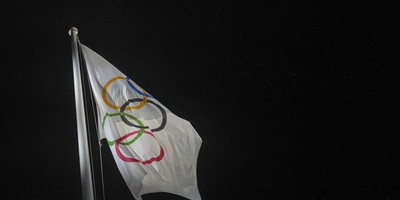In the Coke Zero commercial, an impatient young man says, "It's 2010. Weren't we supposed to have time machines by now?" Human rights supporters have equal cause to ask, "Weren't we all supposed to have democracy by now?"
In 1992, after the collapse of the Soviet empire, Francis Fukuyama wrote that "for a very large part of the world, there is now no ideology with pretensions to universality that is in a position to challenge liberal democracy, and no universal principle of legitimacy other than the sovereignty of the people." A host of despots, however, has managed just fine without a universal principle.
The world is freer and more democratic than it was then. But advances have been stymied by dozens of repressive regimes. The human rights group Freedom House said in January that the previous four years made up "the longest continuous period of deterioration" in the nearly 40 years it has kept tabs. This year brought no evident turnaround.
That is fine with the rulers of China. Liu Xiaobo was awarded the Nobel Peace Prize for his efforts to advance democracy and free speech, which had also earned him an 11-year prison term. The December event was the first time neither the winner nor his representative was allowed to attend since 1935, when the Nobel Committee honored a dissident in Nazi Germany.
In North Korea, the ailing Kim Jong-il installed his son Kim Jong-un as heir apparent -- proving that Marxism can coexist with monarchy. A former Nobel Peace Prize laureate, Burma's Aung San Suu Kyi, was released from seven years of house arrest after her jailers won elections that were widely denounced as rigged.
A secret Pentagon cable published by WikiLeaks said Defense Secretary Robert Gates told his French counterpart that "Russian democracy has disappeared." Elections in Belarus were not free enough to deprive re-elected President Alexander Lukashenko of his claim to be the last dictator in Europe.
Recommended
The American effort to spread democracy in the Middle East and Muslim world encountered fierce headwinds. Afghan President Hamid Karzai took over an election commission after it had the nerve to find rampant irregularities in the election he won last year. Unhappy with the U.S. government, he told the American ambassador, "If I had to choose sides today, I'd choose the Taliban."
Iraq held elections that didn't produce a new government until nine months later, during which time authorities banned political demonstrations. In Egypt, the opposition Muslim Brotherhood went from 88 seats in parliament to one. "At least get creative in how you rig the elections," one newspaper publisher implored President Hosni Mubarak, who has been in power for 29 years.
On the other side of the globe, 85 percent of Venezuelans said they don't want their country to resemble communist Cuba. But President Hugo Chavez nationalized hundreds of businesses, closed down the last remaining opposition TV station and expelled a member of the European Parliament for calling him -- I am not making this up -- a "dictator."
Retired Cuban autocrat Fidel Castro, meanwhile, admitted the communist economic model "doesn't even work for us anymore." The number of political prisoners in Cuba fell to the lowest level since 1959.
Haiti suffered a horrendous earthquake, a cholera epidemic and a chaotic national election spoiled by violence and fraud. Nicaraguan President Daniel Ortega made it plain he will run for re-election in 2011 even though the Constitution forbids him from seeking another term.
In Africa, there are modest signs of progress. The number of coups on the continent fell by more than half in this decade compared to the one before, and 48 countries were scheduled to go to the polls this year.
Successful, credible votes took place this year in Tanzania and Somaliland. Guinea's military junta yielded to civilians after the country's first democratic election.
But many exercises in democracy were a sham. Sudanese President Omar al-Bashir, wanted by the International Criminal Court on war crimes charges, won after warning that if international poll watchers caused trouble, "we will cut off their fingers." The president of Ivory Coast lost a November election but has refused to step down, raising the specter of renewed civil war.
This year served mainly to vindicate the desires of tyrants and the fears of pessimists. To recapture the sense that the world is destined for universal democracy, you'd need a time machine.
























Join the conversation as a VIP Member